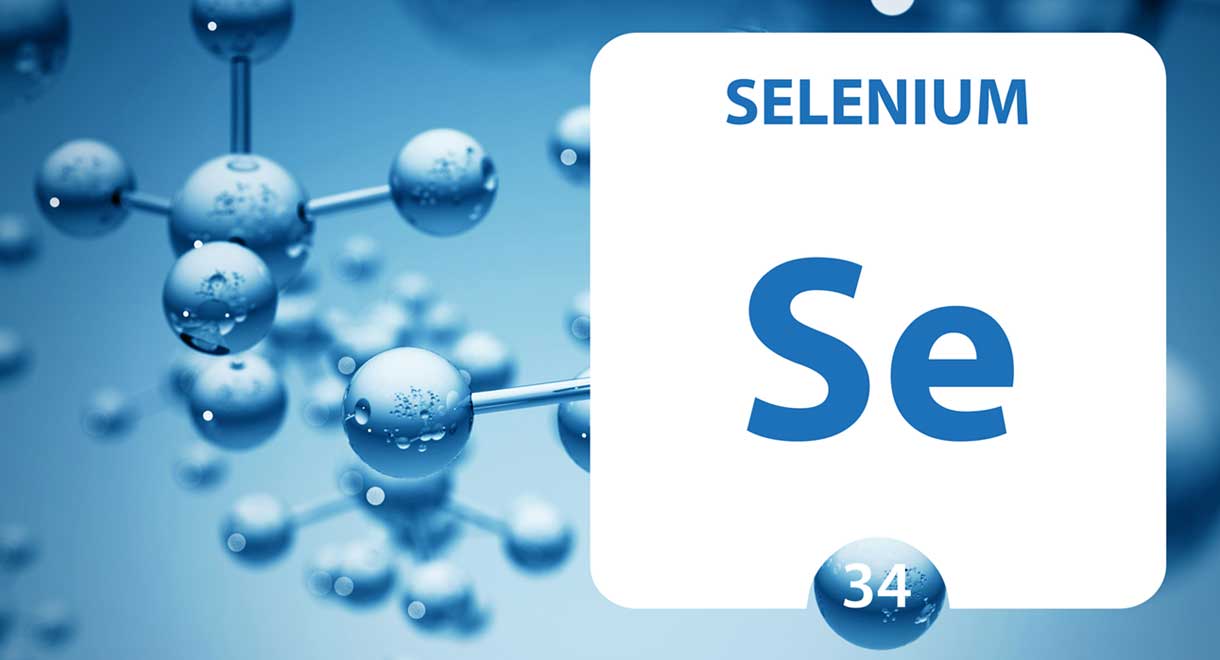Selenium Is A Crucial Antiviral Agent
Selenium is the most important nutrient that your immune system needs to fight viral infections. Selenium deficiency creates a weakening of defences against infectious diseases, especially those caused by viruses. Selenium deficiency may lead to increased risk that a virus will change itself from a benign (mild) virus to a highly virulent (dangerous) virus. This is because if there is not enough selenium in an infected person the virus has greater tendency to change its genetic identity to a more dangerous form – this is called a mutation.
An adequate supply of macro- and micronutrients is vital to support host immune defense and resistance against dangerous disease-causing microorganisms. The modern-day diet is often not sufficient to meet the increased demands for micronutrients in infectious diseases. Many areas of the world have selenium deficient soils.
Dietary supplements containing selenium up to 100 to 200 mcg/daily have potential as safe and inexpensive additional therapy in viral infections. Dietary supplementation with selenium might also be useful to strengthen the immune system of patients suffering from other viral epidemics such as the West Africa Ebola outbreak of 2013-2016. Populations in several countries most afflicted by past outbreaks of Ebola fever (e.g., Liberia, Guinea, Democratic Republic of Congo) showed a high risk of selenium deficiency. Interestingly the lowest dietary selenium supply in Africa was reported from Liberia, with a daily intake of only 23 mcg of selenium.
Selenium has been known as “the viral birth control pill” because it can reduce the ability of viruses to increase in numbers.
A study in 1998 found that patients with severe viral infections have rapidly decreasing concentrations of selenium in their body. Almost half of a person’s selenium concentrations may disappear during such infection, which can be life-threatening, if the person’s selenium levels are already low.
This study discovered the unexpected degree to which selenium is used up when the immune system is activated by the virus. Even in people who get adequate amounts of dietary selenium, additional supplementation will be beneficial.
Selenium protects the genetic material from mutations in humans, animals and viruses. When a virus infects a human or animal lacking selenium, the virus can undergo mutations making it far more dangerous. If the virus also lacks selenium, mutations can occur making it even more dangerous. There is a risk that many viruses could become more virulent by passing through a selenium-deficient host.
In addition to selenium, supplements of the mineral zinc and vitamin C have been proven to exert valuable antiviral and anti-inflammatory effects. Vitamin D is also important for a strong immune system and you do not want to be deficient in vitamin D during a respiratory virus pandemic.
It is important to remember that antibiotic drugs do not help your body to fight viral infections. If we are fortunate enough to get an effective and safe vaccine against COVID-19 we can relax a little but remember viruses will always be mutating into new and dangerous forms. Don’t be complacent and keep your immune system strong.
When going out into public places it is beneficial to wear a protective mask such as P2 or N95 masks and to wear disposable gloves.
The above statements have not been evaluated by the FDA and are not intended to diagnose, treat or cure any disease.
References:
De Rosa SC, et al. N-Acetyl-Cysteine replenishes glutathione in HIV infection. Eur J Clin Invest. 2000; 30:915-929.
Adv Nutr. 2015 Jan; 6(1): 73–82. Published online 2015 Jan 7. doi: 10.3945/an.114.007575.
Dietary Selenium in Adjuvant Therapy of Viral and Bacterial Infections, The Journal of Nutrition, Volume 133, Issue 5, May 2003, Pages 1463S–1467S, https://doi.org/10.1093/jn/133.5.1463S.
Forceville X, et al. Selenium, systemic immune response syndrome, sepsis, and outcome in critically ill patients. Crit Care Med. 1998;26(9):1536-44.
Beck MA et al. Host nutritional status and its effect on a viral pathogen. J Infect Dis. 2000;182 Suppl 1: S93-6.
Int J Chron Obstruct Pulmon Dis. 2006 Jun; 1(2): 99–106. The role for N-acetylcysteine in the management of COPD, Published online 2006 Jun. doi: 10.2147/copd.2006.1.2.99.
R. Zuin et al., Clin Drug Invest. 2005;25(6):401-408. High Dose N-Acetyl-Cysteine in patients with exacerbations of Chronic Obstructive Pulmonary Disease.
Claudio M. Sanguinetti, N-Acetyl-Cysteine in COPD: why, how, and when? Multidisciplinary Respiratory Medicine volume 11, Article number: 8 (2015).
The Therapeutic Use of N-Acetylcysteine (NAC) in Medicine, authors Richard Eugene Frye and Michael Berk, Publisher © 2019 Springer Nature Switzerland AG.


Leave A Comment